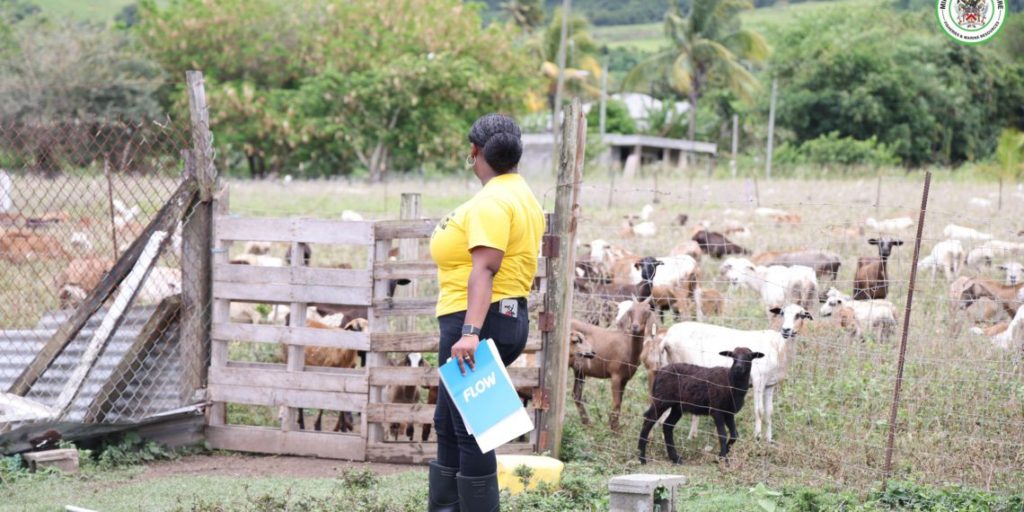Livestock Judging Competition Commences in Advance of 2025 World Food Day Celebrations in St. Kitts
The Department of Agriculture in St. Kitts hosted its annual Livestock Judging Competition from May 1st to 3rd, 2025, initiating a series of agricultural evaluations culminating in World Food Day celebrations. This year’s competition commenced with a focus on poultry farm assessments before expanding to encompass a wider range of livestock, including cattle, sheep, goats, pigs, and rabbits. This comprehensive evaluation process serves as a cornerstone of the nation’s commitment to bolstering food security and sustainable livestock production. The competition aims to recognize and elevate the contributions of local farmers, driving improvements across the agricultural sector.
The judging process involves a rigorous assessment of participating farms based on a comprehensive set of species-specific criteria. These criteria encompass a broad spectrum of factors, ranging from animal health and welfare to farm management practices and environmental sustainability. Evaluators scrutinize aspects such as housing and environmental management, ensuring that livestock are raised in suitable conditions. Nutritional and feeding practices are examined to ensure optimal animal health and productivity. Production records are reviewed to gauge farm efficiency and identify areas for improvement. Farm management practices are assessed to promote best practices in areas like record-keeping, resource allocation, and financial management.
Biosecurity measures, crucial for preventing disease outbreaks and maintaining herd health, are also a key component of the evaluation. Stringent biosecurity protocols are essential for protecting livestock from infectious agents and minimizing the risk of disease transmission. Animal welfare standards are carefully considered, reflecting a growing global emphasis on ethical treatment and humane practices in livestock farming. The evaluations also incorporate environmental sustainability criteria, recognizing the importance of minimizing the environmental footprint of livestock production. This holistic approach ensures that both the technical proficiency and ethical considerations of livestock farming are thoroughly evaluated, aligning with international standards and promoting responsible agricultural practices.
The competition fuels healthy competition among livestock producers, motivating them to continually improve their husbandry techniques and strive for excellence in animal care and production. This competitive environment fosters a spirit of innovation and encourages the adoption of best practices within the farming community. Furthermore, the competition serves as a valuable platform for knowledge exchange, facilitating the dissemination of information and expertise among farmers. This peer-to-peer learning fosters a collaborative atmosphere where farmers can learn from each other’s experiences and collectively enhance their skills.
Participating farmers vie for a range of prestigious titles, recognizing achievements in various livestock categories. Awards are presented for the Best Managed Farmer across poultry, swine, rabbit, small ruminant, and large ruminant categories. Recognition is also given to the Top Producers of eggs, pork, mutton, and rabbit meat. The coveted Livestock Farmer of the Year award represents the pinnacle of achievement, recognizing overall excellence in livestock management and production. These awards serve not only as a testament to individual farmers’ dedication and skill but also as an inspiration to others within the agricultural community.
The Livestock Judging Competition forms an integral part of a broader national strategy aimed at strengthening the capacity of the animal agriculture sector. By providing a platform for evaluation, recognition, and knowledge sharing, the competition contributes significantly to the development of a more robust and sustainable livestock industry. This initiative equips farmers with the skills and knowledge necessary to meet the demands of the local market while also adhering to international standards of quality and sustainability. The competition serves as a catalyst for continuous improvement, driving the sector towards greater efficiency, productivity, and adherence to ethical and environmental best practices. This commitment to raising standards within the livestock sector contributes to a more secure and sustainable food system for the nation.
Share this content:












Post Comment